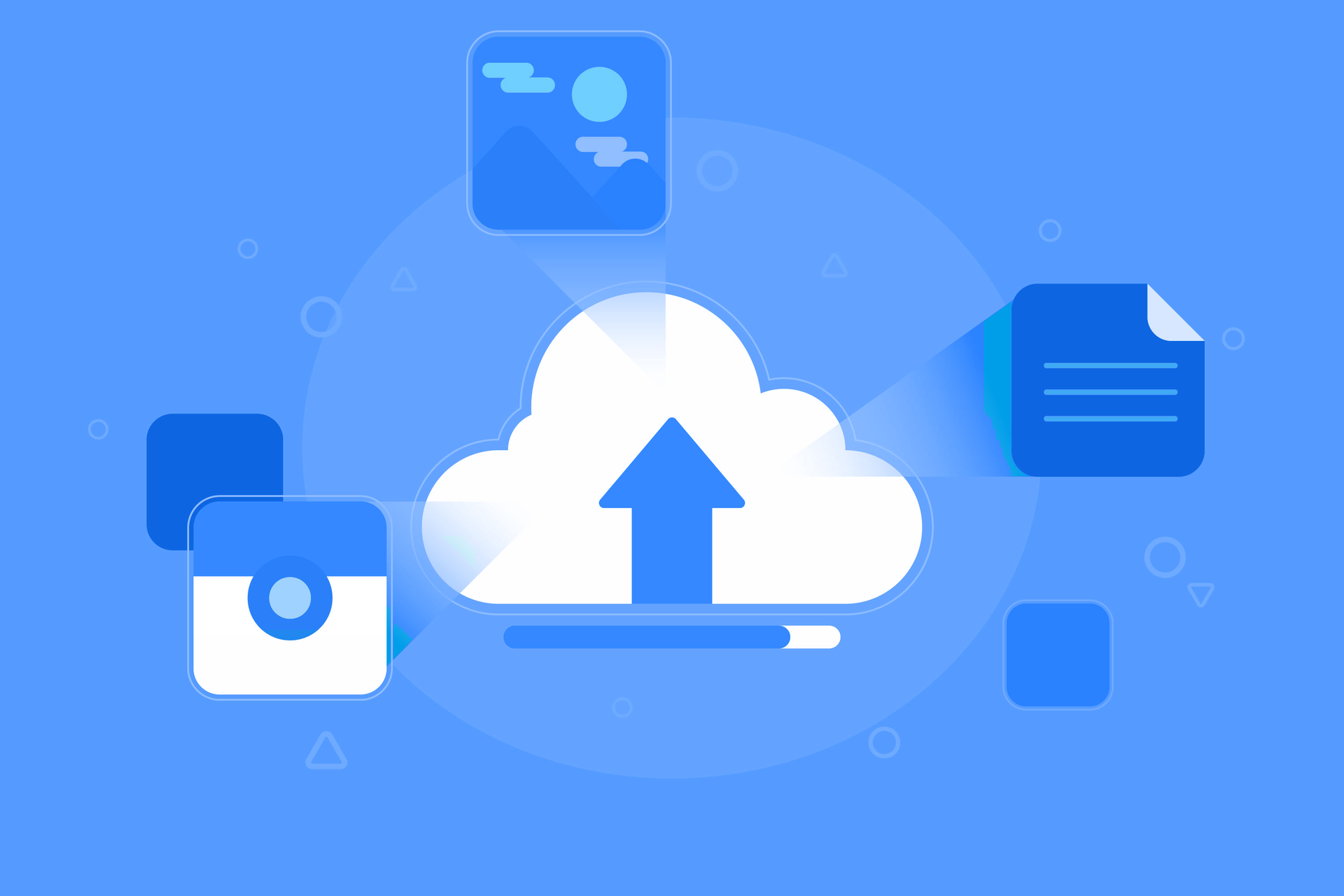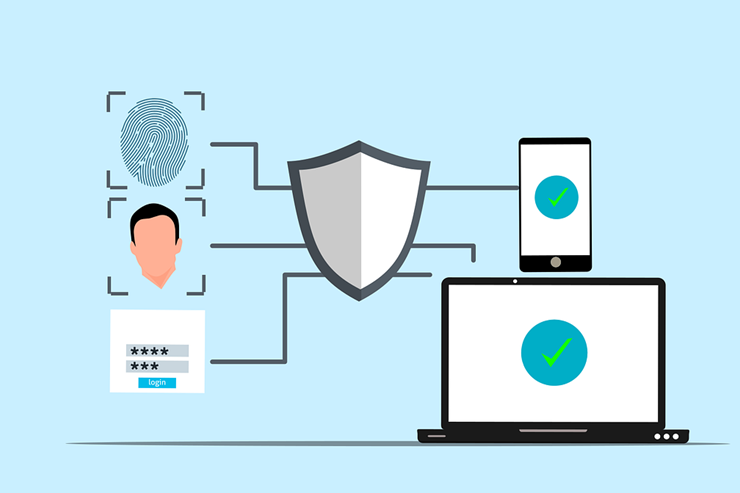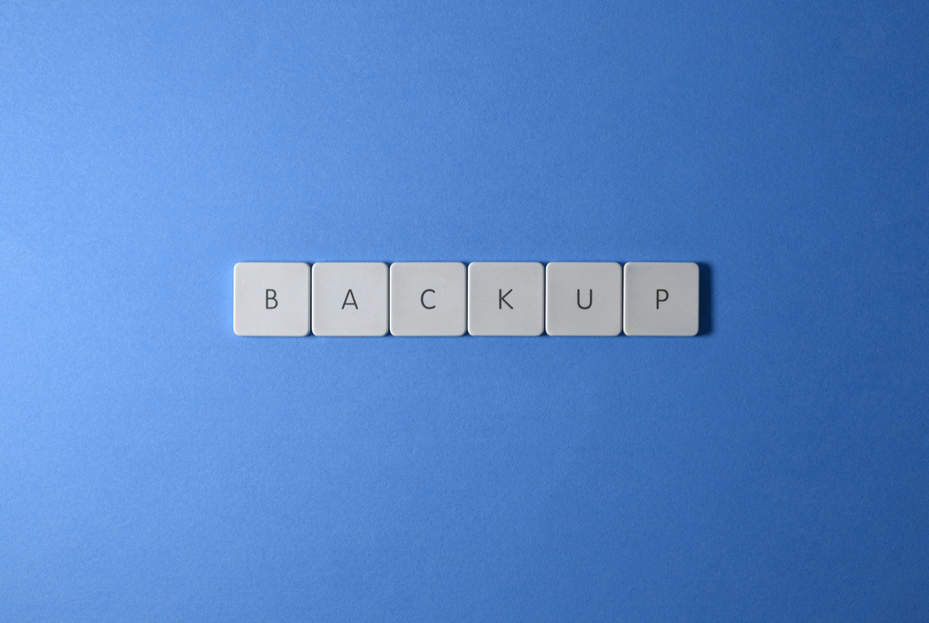BCP tactics to keep your business running
April 19, 2019

Whether your business is hit with a brief power outage or by a natural disaster, any kind of interruption to your organization’s productivity cuts into your profits. A business continuity plan (BCP) is critical to ensuring your organization stays open. Here are some of the key strategies many companies rely on.
Backup your data, applications, and servers
Today, companies are more dependent than ever on IT and data. If these critical components suddenly become inaccessible, there’s little chance your business will survive. Regularly backing up these elements ensures they can be restored quickly in the event of a disaster, security breach, or damage to IT equipment.
In the past, most businesses would create backups on-site and with tape backups, but today more and more businesses are using the cloud, and here are several reasons why:
Cloud backups are affordable and cost much less than onsite backups
Backups can be automated, therefore saving you time
Cloud providers usually back up your data to multiple locations (so if one of their facilities goes down, your backups are still safe at another site).
Backups can be accessed from anywhere, whether it’s at an employee’s home or at an alternate office.
If you need to access them, backups can be restored quickly
Virtualize servers and desktops
When you virtualize your servers or desktops, they can be used at any location – be it at your workplace, home, or a coffee shop in the Bahamas. In terms of business continuity, this is useful in case your main office suddenly becomes unusable due to hostile weather conditions.
Have a backup power supply
No electricity means zero productivity and money down the drain. Having a backup power supply will ensure that when the electricity goes down, your employees can continue working.
A good solution is an uninterrupted power supply (UPS), which gives employees a fair amount of time to finish their work as if nothing ever happened. Also, if you have a server room, a UPS will ensure your vital servers stay cool.
Utilize social media
Whether it’s Facebook, Twitter, or Google+, most people are on at least one social network these days. And if there is any kind of outage or disaster, social media is usually one of the first places customers, colleagues, staff, and vendors will check the status of your business. So when it comes to business continuity, keep at least one social media account active to keep your customers and followers informed.
Implement unified communications
Unified communication (UC) creates a virtualized communication infrastructure. That means instead of your communication tools – like phones, instant messaging, and video calls – all being stored locally at your workplace, you can access them anywhere. So if your office is inaccessible, employees can still use your phones and other communication tools from their homes. What’s more, UC tools can route business calls to your employees’ smartphones. That means they’ll never miss an important call, even if they’re not in the office.
Keep in mind that these are only the first few items you have to address in your business continuity plan. You’ll also need to consider things like training employees and having a communications plan for informing stakeholders. If you want more advice on these areas or need top-class business continuity tools, contact us today.
Published with permission from TechAdvisory.org. Source.

A slow computer or a frozen screen are the worst things that can ruin your day. You've most likely dealt with outdated technology on multiple occasions if you manage a small business. It may seem cost-effective to extend the life of outdated equipment, but the long-term costs are frequently higher. Due to technological issues like sluggish PCs and antiquated laptops, small businesses lose about 98 hours annually, or 12 working days . This is why it's important to have an IT refresh plan. It helps you stay safe, prevents unplanned malfunctions, and keeps your team operating efficiently. Regardless of whether you outsource managed IT services or handle them in-house, a solid refresh strategy can save time, stress, and money down the line.

Does your small business ever feel like it has too much data? This is a fairly typical occurrence. The way small businesses function has changed as a result of the digital world. In addition to customer emails and backups, we now have an overwhelming amount of data to manage, including financial statements, contracts, logs, and employee records. According to a PR Newswire survey, 72% of company executives say they have stopped making decisions because the information is too overwhelming. All of this data can easily become disorganized if improperly handled. By implementing the appropriate data retention policy, effective IT solutions assist. A strong data retention policy keeps your company compliant, organized, and cost-effective. Here's what should be deleted, what should be kept, and why.

Selecting the best cloud storage solution can be similar to being faced with an endless buffet of options, each one claiming to be the best. A poor choice may result in lost revenue, compromised data, or even a snag in productivity. The stakes are extremely high for small business owners. Regardless of your level of experience, we will guide you through this thorough guide to help you choose a cloud storage solution that is specific to your company's needs.

Cyber threats are a daily reality for small businesses navigating an increasingly digital world; they are not merely an abstract concern. Financial and reputational harm can result from ransomware attacks, phishing scams, or unintentional data leaks. In order to reduce the risks, more businesses are using cyber insurance. Not every cyber insurance plan is made equally. Many business owners think their policy covers them, but they discover (too late) that it has significant gaps. We'll explain exactly what is and isn't covered in this blog post, along with how to pick the best cyber insurance plan for your company.

Have you ever questioned how susceptible your company is to online attacks? Nearly 43% of cyberattacks target small businesses , frequently taking advantage of lax security measures, according to recent reports. Multi-Factor Authentication (MFA) is one of the most underutilized yet powerful ways to safeguard your business. Even with your password, hackers will find it much more difficult to obtain access thanks to this additional security measure. The implementation of Multi-Factor Authentication for your small business is explained in this article. Knowing this will enable you to take an important step toward protecting your data and guaranteeing more robust defense against possible cyberattacks.

Managing a small business requires a lot of multitasking. These hats include operations management, customer service, and maintaining order. AI-powered automation is a solution that can reduce the workload. Small business owners can now automate tasks that were previously done by hand thanks to technological advancements that have made these tools more affordable and accessible than before. There's no need to hire a big staff or spend a fortune. AI can manage a large portion of your hectic workload, allowing you to concentrate on more crucial facets of your company. AI can act as your virtual assistant, increasing productivity and simplifying processes, whether you're a small team manager or a solopreneur. This blog post explores how you can automate everyday tasks and free up your time if you want to learn more about how AI can change your company. We'll demonstrate how to use reasonably priced AI tools to reduce repetitive tasks, save time, and increase business efficiency.

In today's digital world, cyber threats are smarter than ever. Weak passwords or old ways of proving who you are can cost people and businesses money, steal their data, or steal their identities. A strong password is the first thing that will keep hackers out, but it's not the only thing that will work. This guide goes over the basics of strong passwords, two-factor authentication, and the best ways to keep your accounts safe. We'll also talk about new ways to check things and things you should never do.

A sophisticated type of cyberattack known as "password spraying" uses weak passwords to acquire unauthorized access to numerous user accounts. This approach focuses on using a single password or a collection of passwords that are frequently used across multiple accounts. The goal is to circumvent standard security protocols, such as account lockouts. Password-heavy attacks are highly effective because they target people and their password management practices, which are the biggest weakness in cybersecurity. This ar ticle will describe how password spraying operates, address how it differs from other brute-force attacks, and go over how to detect and prevent it. We will also discuss how businesses can defend themselves against these threats and examine real-world examples.

What would happen if tomorrow your company lost all its data? Would your operations come to a complete stop, or would you be able to recover? Data, including communications, financial records, product files, and customer information—is the lifeblood of any small business. However, data security is frequently neglected. After a disaster, 25% of small businesses close within a year, and 40% never reopen , according to the Federal Emergency Management Agency (FEMA). That represents an incredible 65% failure rate because of inadequate preparation. The good news is here. An enterprise budget and a dedicated IT staff are not necessary for disaster data protection. You can create a backup and recovery plan that reduces downtime and provides you with peace of mind if you have the right approach, the appropriate tools, and a little forethought. In this blog post, we will discuss practical and easy-to-follow advice to help you protect your most valuable business asset: your data.

